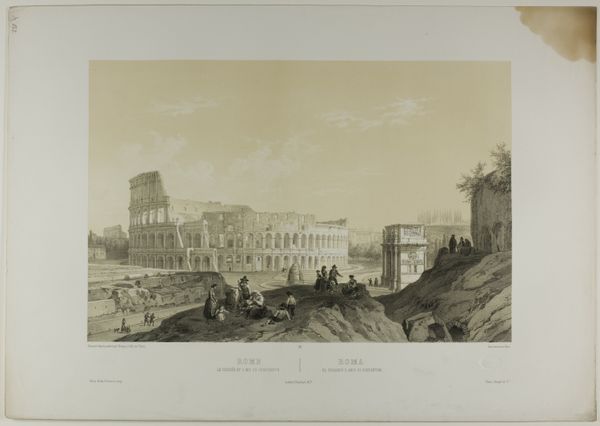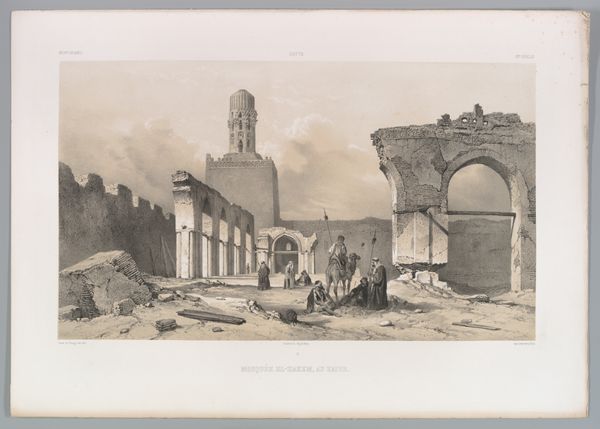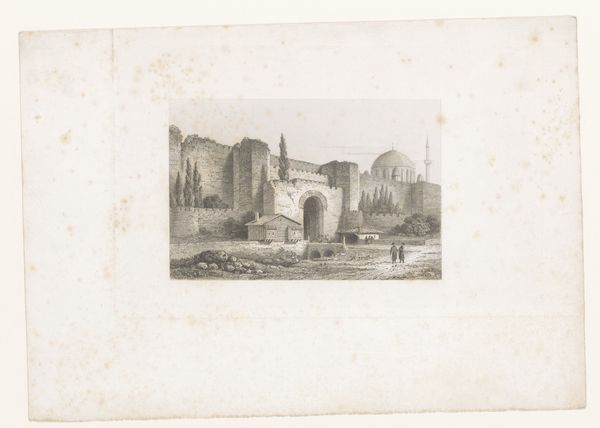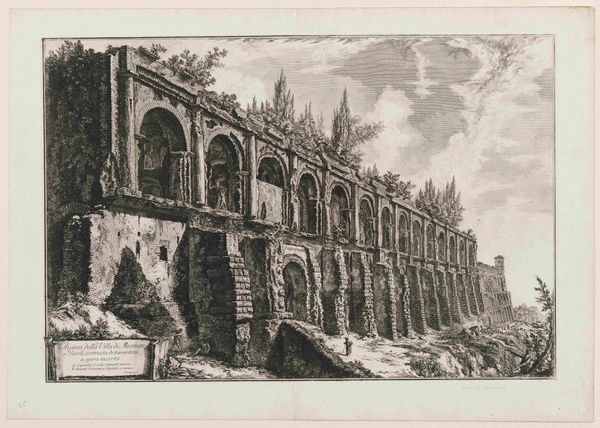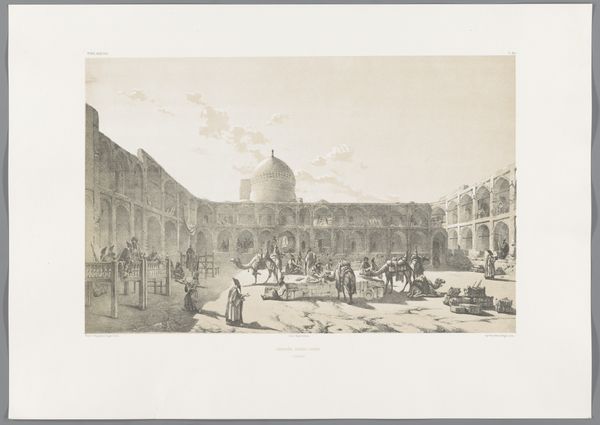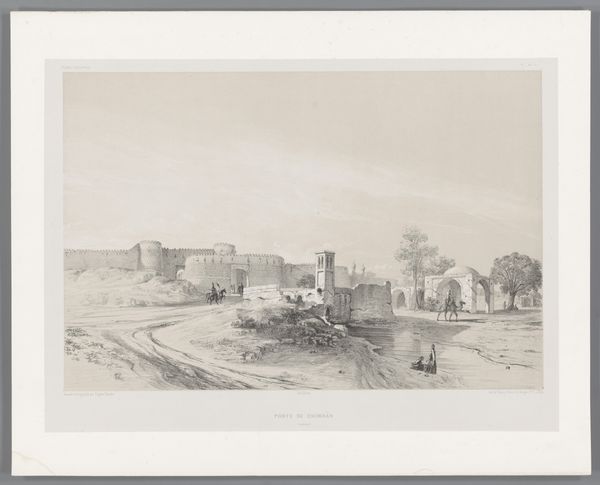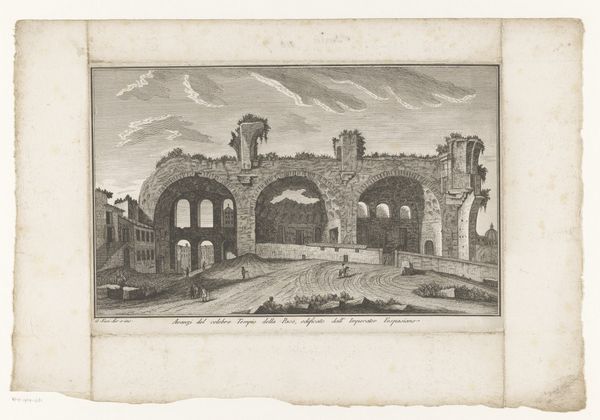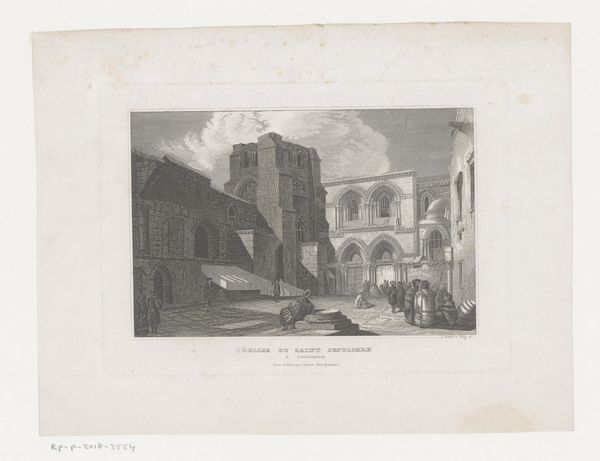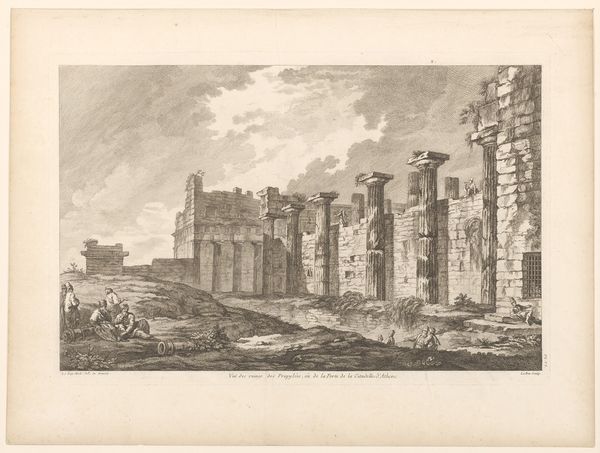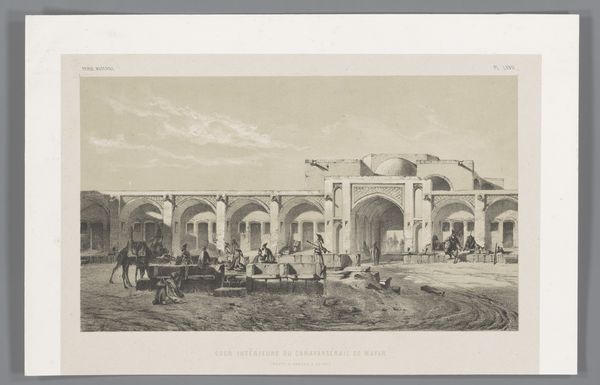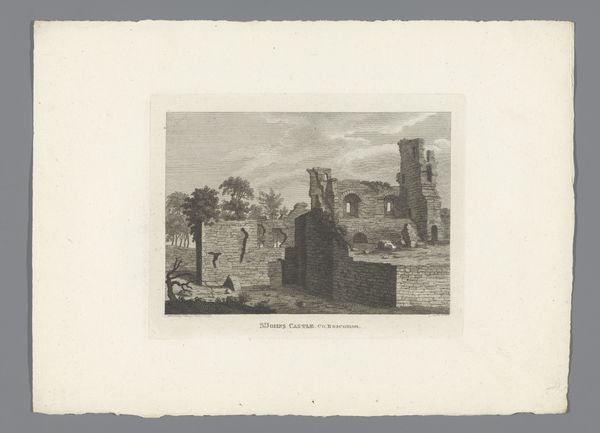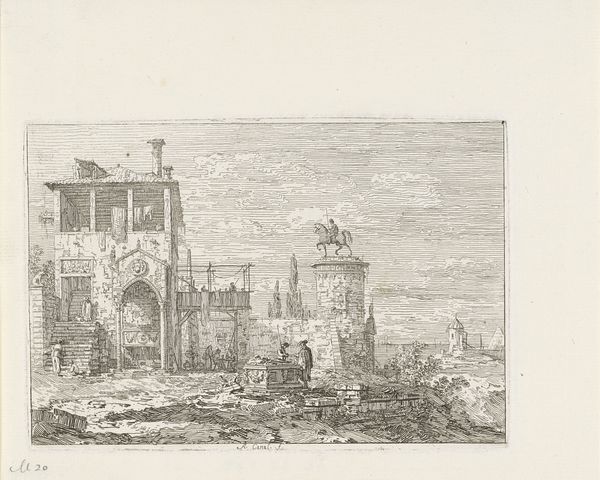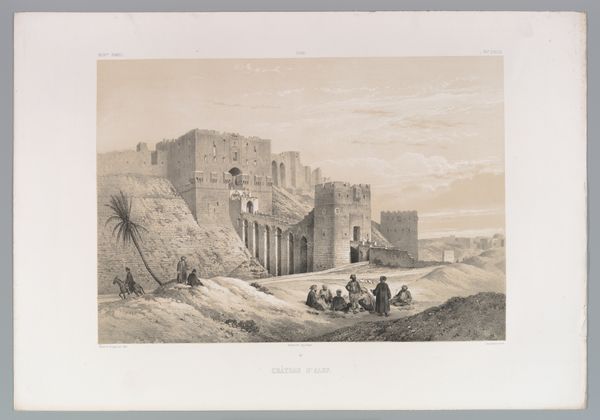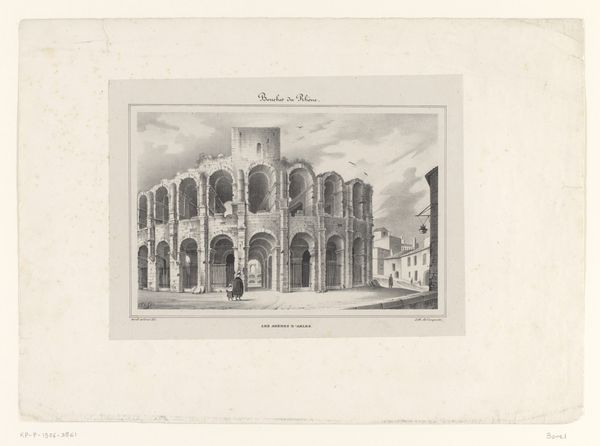
drawing, paper, ink
#
drawing
#
landscape
#
paper
#
ink
#
romanticism
#
orientalism
#
cityscape
#
watercolour illustration
#
watercolor
Dimensions: height 446 mm, width 589 mm
Copyright: Rijks Museum: Open Domain
Eugène Flandin created this print of the Khaju Bridge in Isfahan using lithography. The bridge's arches are more than mere architectural features; they carry the weight of cultural memory. Think of the arch as a symbol of transition and connection, a gateway between different states of being. This echoes ancient Roman aqueducts, or even the gates of Ishtar in Babylon; structures that not only served practical purposes but also spoke to mankind’s aspirations for connectivity and order. Across centuries, the arch evolves, yet its essence remains. It's a universal desire to bridge divides, both literal and metaphorical, tapping into our deepest longings for understanding and unity. Just as the arch connects two banks of a river, it also symbolically bridges the past and the future, the known and the unknown. The persistence of such a motif highlights how symbols recur in human expression, carrying collective emotions and unconscious yearnings across eras.
Comments
No comments
Be the first to comment and join the conversation on the ultimate creative platform.
